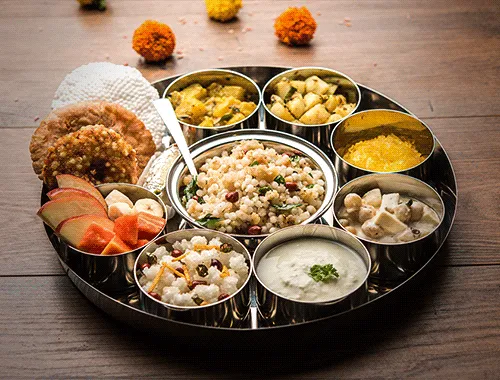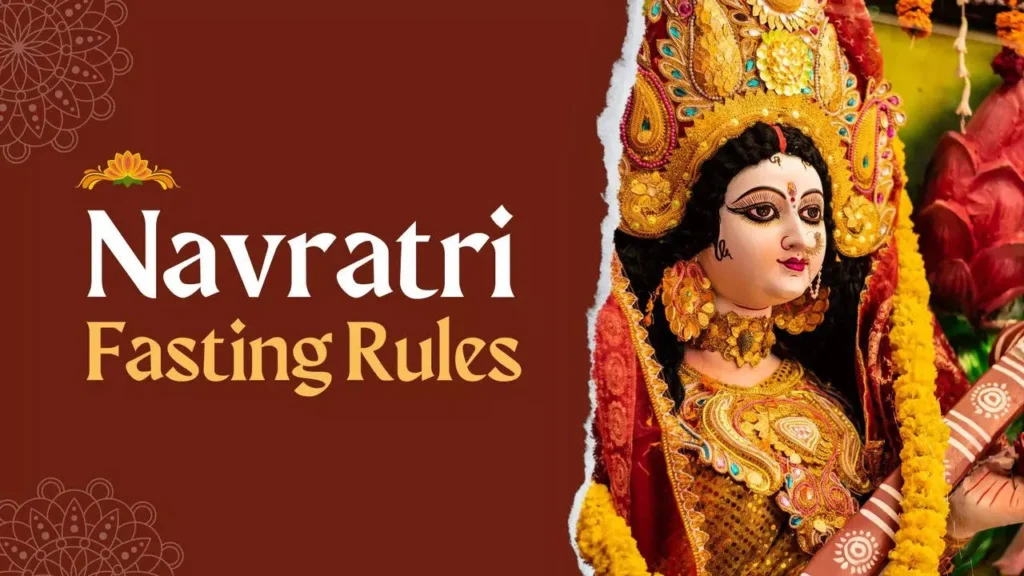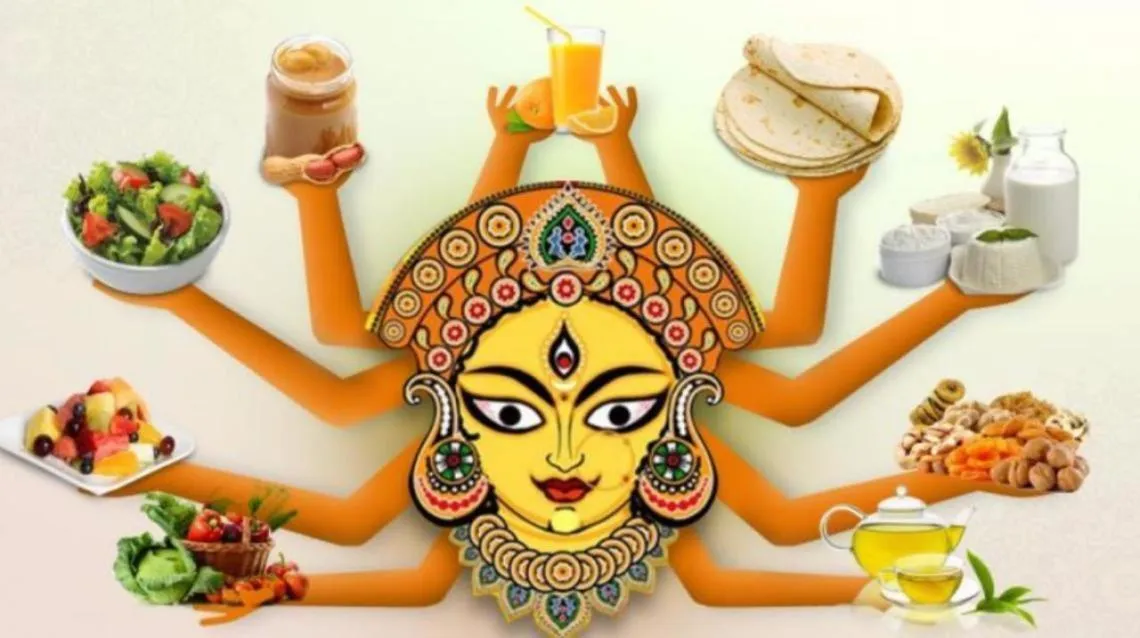If you observe the Navratri and need some recommendations for foods to be consumed Fasting During Navratri, read this guide further for nourishing your body during this festival.The colorful festival of Navratri is only for Goddess Durga, but, it is known to be nights of fasting, feasting, and all sorts of festive rituals performed during the nine nights. Many devotees, who fast for the cleansing of their body and spirit, enjoy different tastes and wholesome nutrients, and it’s a great time.
Understanding the Navratri Diet
Most of the devotees during Navratri follow a sattvic diet; which means, pure and natural foods consumed with a clear and healthy mind. This diet most of the time excludes rice, wheat, Non-veg items, beverages, and some kinds of spices. Instead, the diet includes some special flours, fruits, vegetables, and dairy products.
Philosophy behind Foods
Sattvic Foods: Sattvic foods are pure foods. They happen to carry essential nutrients and energy. Thus, they seem to be the best choice for a fast.
A diet that is full of natural and seasonal ingredients will get you plenty of fresh, seasonal produce, which will contribute to local agriculture and ensure you get the best that can be taken into the body.

Recommended Foods for Navratri
1. Fruits
Fruits: Non-Negotiables during Navratri are fruits, which are full of vitamins, minerals, and natural sugars that offer energy. Some favorites include:
Bananas: packed with potassium and energy
Apples: snacking is wonderful, very high in fiber and vitamins
Pomegranates: super antioxidant hydration drink
Coconut: Both the water and meat hydrate and provide healthy fats
2. Vegetables
Some vegetables are allowed and can be consumed in numerous ways:
Potatoes: Well-cooked or roasted, they can also be turned into curry.
Sweet Potatoes: Healthy substitute that can be baked or cooked
Pumpkin: Added to curries or to prepare a sweet dessert
Spinach: Goes well in smoothies or as an ingredient in soups
3. Flours and Grains
Whole grains are strictly not recommended, there are a number of alternatives that are very common during Navratri:
Buckwheat (Kuttu): Rotis, pancakes, or even a kind of porridge.
Water Chestnut (Singhara): Good for flour and delicious snacks.
Tapioca (Sabudana): Useful for a wholesome filling with khichdi or vadas.
Rajgira (Amaranth Flour): Useful for rotis and sweets.
4. Dairy Products
Dairy products make an important constituent of the diet chart for Navratri, apart from the provision of protein and calcium.
Yogurt: Tastes good when taken without any accompaniment; It aids in digestion.
Paneer (Cottage Cheese): A rich source of protein and can be added to any curry dish.
Milk: Drink it straight or use it in desserts like kheer.
5. Nuts and Seeds
Nuts and seeds are perfect for snacking and offering healthy fats.
Peanuts: Commonly used in sabudana khichdi, etc
Almonds: Wonderful snack or added to smoothies
Pumpkin Seeds: Use them to sprinkle on salads or enjoy raw
6. Snacks and Sweets
Navratri is also an excuse for some special snacks and sweets
Sabudana Vada: Crunchy Fritters of tapioca, potatoes, spices.
Kuttu ki Puri: Fried flat breads are prepared from buckwheat flour.
Coconut Laddus: These use grated coconut and jaggery for festive preparations.
Fruit Chaat: This refreshing mix of seasonal fruits is spiced with chaat masala.

Dos and Don’ts When Fasting During Navratri
- No to Grains and Non-Vegetarian Foods: Regular fasting prohibits the consumption of rice, wheat, and any other meat products, so be extra cautious about what you eat.
- Eat Less Processed Foods: Avoid processed packaged snacks and junk foods that may not serve the fasting spirit.
- Do Not Overindulge: While fasting can be a time to enjoy special foods, do avoid excessive consumption. Keep yourself in balance.
- Avoid Alcohol and Caffeine: These can dehydrate you and affect your general energy levels.
- Do Not Skip Meals: Ensure you maintain regular meals during the fasting period to keep up stamina.
More Tips for Fasting
Preparation: Stock your kitchen with fasting ingredients before Navratri begins to make meal preparation easier.
Listen to your Body: Listen to what your body says. If you are weak, think about breaking your fast or including light meals.
Keep Moving: Light exercises like yoga or walking can help keep the energy going without overexerting yourself.
Conclusion
Spiritual reflection and celebration Navratri is the celebration of inner experiences through food and an embodiment of traditions. Enjoy this riot of vibrant flavors and textures to your heart’s content, and fill these Navratri days with joy, health, and spiritual growth!
These dos and don’ts will ensure that you respect the festival, yet stay healthy and hygienic. Be it a strict fast or a quite easy-going approach to it, make this Navratri a fulfilling experience with spiritual enlightenment. Fasting in Navratri can prove to be an enriching experience both spiritually and physically. By paying attention to healthy, sattvic foods, you will retain your levels of energy and indulge in all the enjoyable activities of the festival while still paying homage to its traditions. If you follow strict dietary rules or simply follow a vegetarian diet, you could delight in the most delicious dishes during these nine glorious days of Navratri! Wishing you a wonderful Navratri, bringing peace and prosperity your way.
